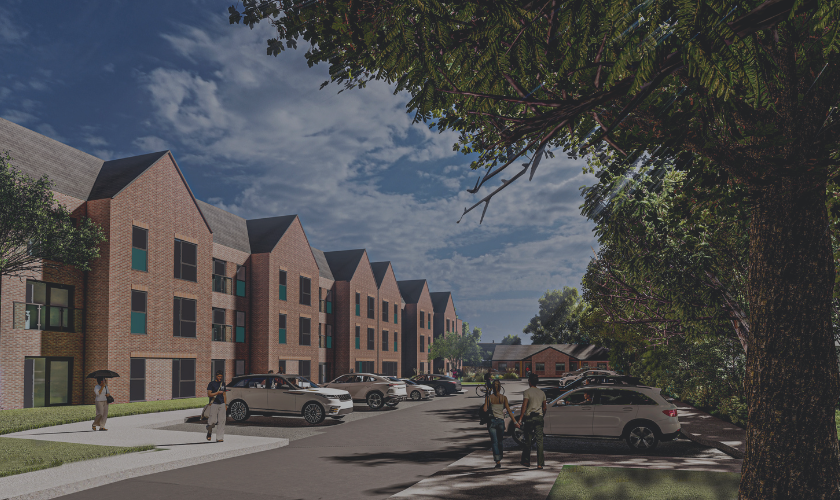It’s crunch time for the UK housing industry, with the demand for affordable homes far outstripping supply. So, with 3.8m people on council housing waiting lists and 200k families without a home, what needs to change for us to build a more sustainable future for the sector?

A disconnect
Right now, there’s a disconnect occurring in the process of optimising the potential of land for sale.
Housing affordability is at a 10-year low, and successful planning applications are failing to match the requirements of the population.
In fact, the average UK property costs 8.1 times more than average earnings, and that’s a sharp increase of 8% compared to 2020.
The state of the housing sector
Indeed, we can’t ignore the hard facts of the current UK affordable housing market.
Since the financial crash of 2008, there’s been a severe shortage of housing in the UK.
In the past ten years alone, there’s been a 141% increase in rough sleeping, while the impact of poor housing is making people physically and mentally ill.
Since 2000, we’ve lost 480,000 social homes – and the Covid-effect has set us back even further.
According to the Local Government Association, 100,000 fewer homes will be built by 2023 as a result of the pandemic.
Consequently, we’ll need to build 340,000 new homes every year for the next decade to catch up to demand.
Of this number, 43% must be available for social renters or eligible for shared ownership schemes if we are to make strides towards alleviating the housing crisis currently at play in the UK.
Is this achievable? Yes, we believe so.
Is it likely? As things stand, no.
In fact, only 57,600 affordable homes were built between April 2018 and March 2020, and housing charity Shelter has warned waiting lists for affordable housing will double next year.
So, what needs to change for us to start constructing the future our society needs?
Of this number, 43% must be available for social renters or eligible for shared ownership schemes if we are to make strides towards alleviating the housing crisis currently at play in the UK.
Is this achievable? Yes, we believe so.
Is it likely? As things stand, no.
In fact, only 57,600 affordable homes were built between April 2018 and March 2020, and housing charity Shelter has warned waiting lists for affordable housing will double next year.

So, what needs to change for us to start constructing the future our society needs?
A catalyst for change
To bridge the gap between achieving best value for landowners and specifying schemes that match the requirements of those in need, there must be a keystone acting to drive things forward.
Fortunately, we have a clear vision of how we can come together to make this happen.
As experts in delivering affordable housing schemes that enhance local communities and secure optimal value for landowners, Collaborate Living is the catalyst needed to make this connection with the urgency required.
We operate from a unique position as the go-to instigator for change for housing associations, construction firms, investors, policymakers, and residents. We’ve built positive relationships with stakeholders across the industry, and we believe change is achievable.
When you work with Collaborate Living, you’re investing in good.
We promote sustainability for all, serving the people who make our communities what they are. Our projects positively impact the environment we live in and achieve real profit for landowners, contractors, housing associations, and local authorities.

The spaces we pioneer leave a proud legacy for future generations, and we take seriously the vital role we play in bringing this process to fruition.
Collaboration is key to us achieving the step-change the UK housing industry must see. Take the first step towards the future we all deserve by contacting our team to discuss how we can work together to reach it.


